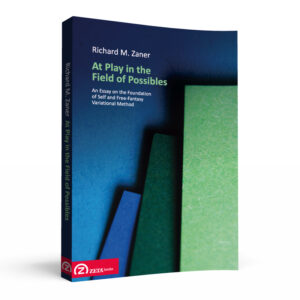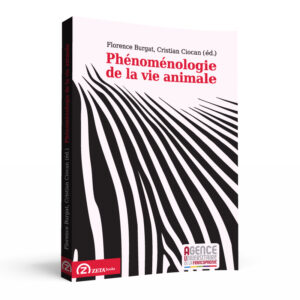At Play in the Field of Possibles. An Essay on the Foundation of Self and Free-Fantasy Variational Method
PRESENTATION
TESTIMONIA
Prof. Zaner returns to a number of themes that have been focal points throughout the body of his publications. If one thought however that, having read his past work, one could afford to skip this one since nothing new would be forthcoming in it, that person would be very mistaken. Topics discussed here include the structure and constitution of phenomenological method, as well as that of philosophy generally, along with free fantasy variation and eidetic intuition, the social world, the contextual and reflexive self, and an intriguing assessment of certain of Alfred Schutz’s claims regarding the nature of intersubjectivity. What is perhaps most noteworthy is how Zaner intertwines these topics and the remarkable argument he presents for the nature of their interconnectedness. The heart of the work is his analysis of free phantasy variation and, from that, his development of how human beings become aware of possibilities and the role that has in consciousness, from the most fundamental levels to that of ideation and conceptualization. That analysis is then put to work in furthering the understanding of the nature and emergence of self and the self’s social milieu. Zaner never fails to provide arresting examples and thought provoking new perspectives on whatever he writes about, as this volume attests. He constantly challenges the reader to adopt new conceptual perspectives and to reconceive old ones. / Ronald R. Cox (San Antonio College), author of Schutz’s Theory of Relevance: a Phenomenological Critique (Phaenomenologica 77, Martinus Nijhoff, 1978)
At Play in the Field of Possibles is beautiful in its lucidity, representing the late style of Zaner’s extraordinary career in philosophy and bioethics. Zaner sets us straight about what makes phenomenology distinct and necessary, leading us from Husserl’s method of reduction to the often neglected but crucially valuable idea about free-fantasy variation or as Zaner calls it “possibilizing.” This book is at once technical and practical. It deserves to be read by social scientists and clinicians as well as philosophers, because Zaner shows us that phenomenology truly is a philosophy of everyday life. Anyone interested in how human consciousness makes sense of its world and the other people in that world will find this book to be an essential guide. / Arthur W. Frank (University of Calgary), author of The Wounded Storyteller and Letting Stories Breathe (University of Chicago Press, 2010).
Zaner’s rigorous analysis uncovers the presuppositions underlying various acts of consciousness that make thought possible through dealing with what might be otherwise, such as exemplification and feigning awareness. At Play in the Field of Possibles demonstrates how free-fantasy variation merits to stand, along with the phenomenological reduction and the epoché, as one of Husserl’s fundamental phenomenological concepts. Having been written over many decades this study of free-fantasy variation also provides the conceptual clue linking Zaner’s philosophical reflections with his self-reflexions in the context of medicine. / Hillel Braude (McGill University), author of “Between and Beyond…” (in: Clinical Ethics and the Necessity of Stories, Springer 2011)
ISBN: 978-606-8266-43-5 (paperback)
ISBN: 978-606-8266-44-2 (ebook)






